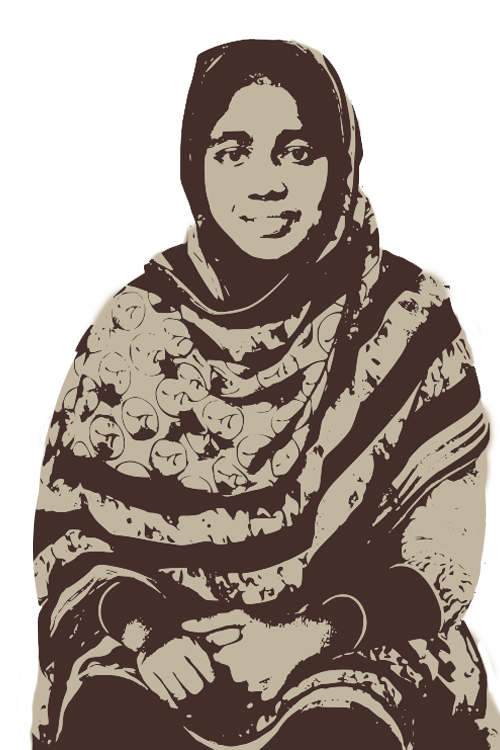-
 Meet RatnaAfter her father died, Ratna was told that shewas not entitled to inherit the 25,000 squarefeet of her father’s property.- Rajshahi, BangladeshStory provided by BRAC
Meet RatnaAfter her father died, Ratna was told that shewas not entitled to inherit the 25,000 squarefeet of her father’s property.- Rajshahi, BangladeshStory provided by BRAC
Profession: Rice and Mustard Farmer
Meet Ratna. Ratna is from the district of Rajshahi in northern Bangladesh. After losing her father in 2002, Ratna was told that she was not entitled to inherit the 25,000 square feet of her father’s property because her grandfather was still alive. Shortly after, and much to her dismay, Ratna’s cousins began cultivating the land that was supposed to be hers.
After learning about a property rights program run by BRAC in her community called “Land Entrepreneurs”, Ratna notified a local Land Entrepreneur of her predicament. Educated and trained to support people encountering land disputes, the Land Entrepreneur sent Ratna to an educational session to learn more about her property rights. In the session, Ratna learned that both she and her sister were legally entitled to their father’s inheritance, even though her grandfather was alive. She also learned that she could receive legal aid support from BRAC’s local Human Rights and Legal Services (HRLS) Aid Clinic to enact her rights.
When Ratna when to retrieve land from her uncles, she found that her father’s property was about to be sold. Ratna told her uncles that she was the rightful inheritance to the land and asked the buyers not to purchase it. Ratna also informed them that if she did not get her property back, she would file a complaint at the BRAC HRLS Aid Clinic. After thinking carefully about this issue, Ratna’s uncles sought legal assistance from a lawyer at the district court. Ratna’s uncles found that her property claims were valid and she was entitled to bring litigation over this land dispute. In 2015, Ratna’s uncles gave Ratna and her sister $1,860 USD, for the market value of the 0.3 acres of land. They assured her that the remaining 0.3 acres would be returned promptly.
Ratna then took a lease for an additional 0.23 acres of land with $930 USD, the portion that she received from her uncles. Now, she cultivates rice and mustard on the land and earns $200 USD annually. Ratna says she feels empowered socially and economically now that she is able to contribute to her family’s income.

